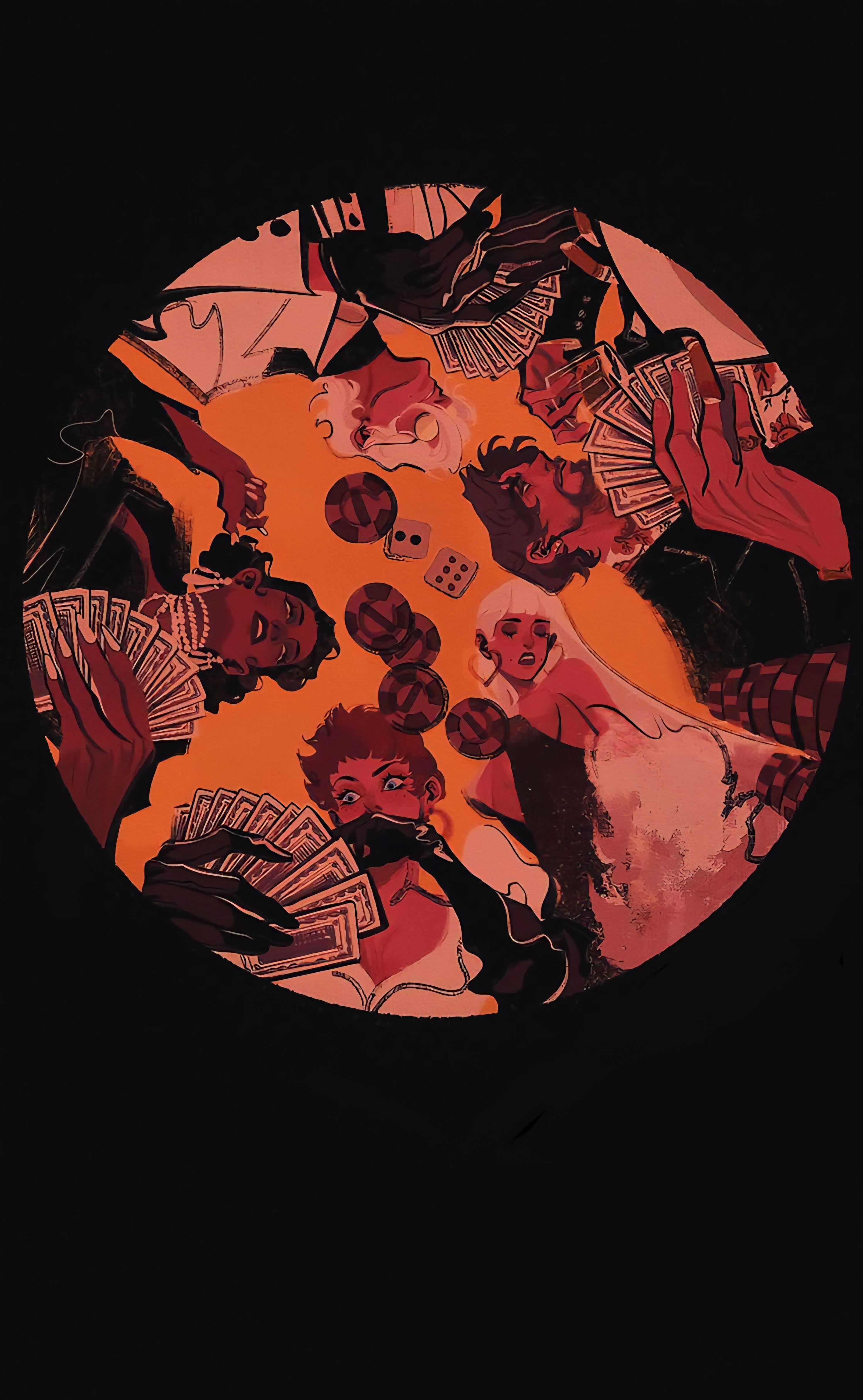2 - Playing The Game
This article assumes you have very little experience with roleplay and goes over the main concepts of role-playing and the system used in this game. Experienced players may find this redundant, so feel free to skip this article at your discretion.
The Purpose
Nether's system is best used in story-driven, role-playing games. Its core mechanics are designed to establish narrative tension while also providing guidelines for playing characters in a fictional world. It draws its biggest inspirations from a combination of game systems, while aiming to make things simple for new players to jump into.
What is Roleplay?
Put simply, role-playing is just the act of pretending to be someone other than yourself. In this case, you take on the role of your character, and get to make critical decisions about what that role looks like and how they behave throughout the story.
The Rhythm of The Game
1.) The Game Master Describes The World - One of your friends takes on the role of “Game Master”, becoming responsible for creating the world. They can design plot hooks; Mysteries to solve, dungeons to explore, people to talk to, adversaries to fight, items to use, etc. They describe the environment and narrate the actions of creatures other than the characters. More on this in Game Master's Guide to Nether
2.) Player's Describe Their Actions - As a player, you describe your character's actions, typically in response to your Game Master's narration. React to the world, describe your character's thoughts and feelings, create connections to your fellow players, take actions based on what your Game Master fellow Players do. There's no rules on how many things you can try, but your actions should be reasonable.
3.) The Game Master Narrates the Results of The Player's Actions - Sometimes resolving a task is easy. If a character walks across a room and tries to open a door, the GM might say the door opens and describe what lies beyond. But the door might be locked, the floor might hide a trap, or some other circumstance might make it challenging for a character to complete a task. In those cases, the GM might ask the player to roll a die to help determine what happens. Describing the results often leads to another decision point, which brings the game back to step 1. (More on this in Dice and Rolling)
Social Rules
- Agency Matters! - Never narrate the thoughts and/or actions of another Player's character without that Player's consent. Your actions and intentions should always be respected and their reactions are always theirs to decide.
- Communication is Key - If something in the story, be it a plot point or a player action, makes you uncomfortable, it's imperative that you communicate your discomfort. This is a game, meant to be enjoyed together with friends. Thus, you should feel safe during the entire event.
- Build Your Story Together - Your story is just as valuable as that of the Player's around you. When designing your character and taking your actions, it's important to consider the other people in your game.
- Your Game Master is Friend, not Foe - While it's true that your Game Master designs the obstacles and adversaries you'll face, they're meant to be just as much an ally as your fellow players. Work with the GM to tell your story, you should never feel like you need to hide something from them, and they should be supportive of your agency and the fun of the game.



